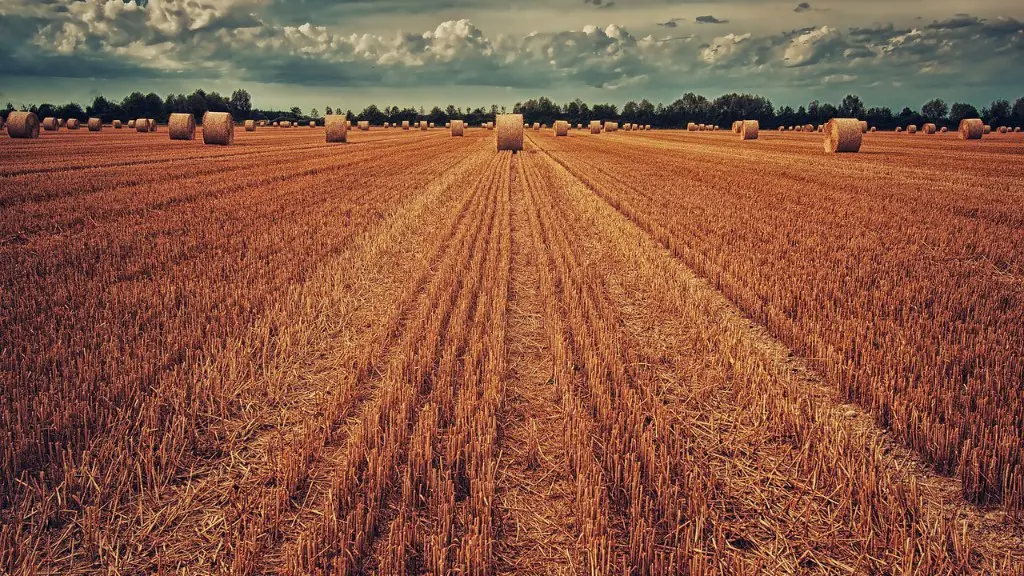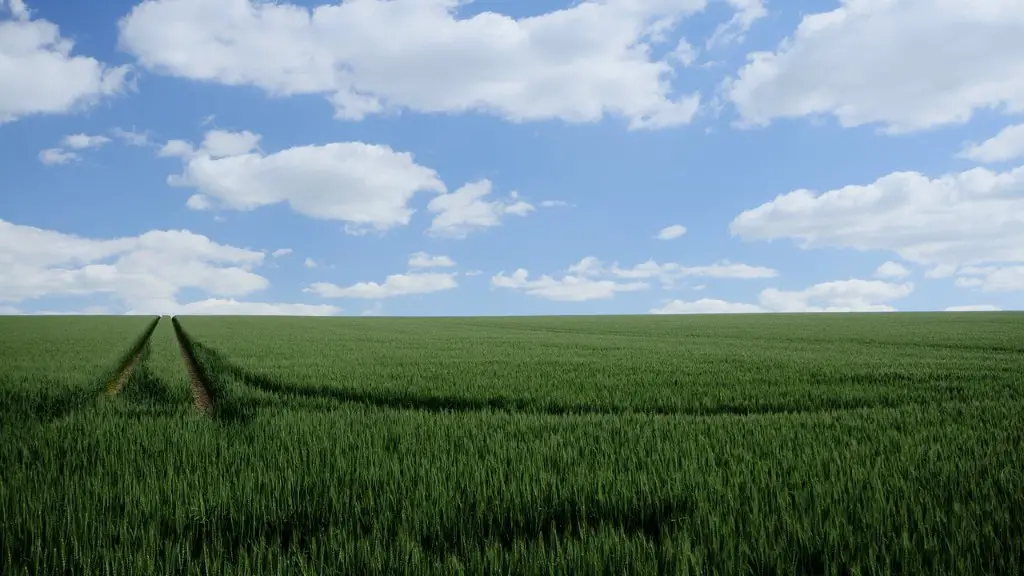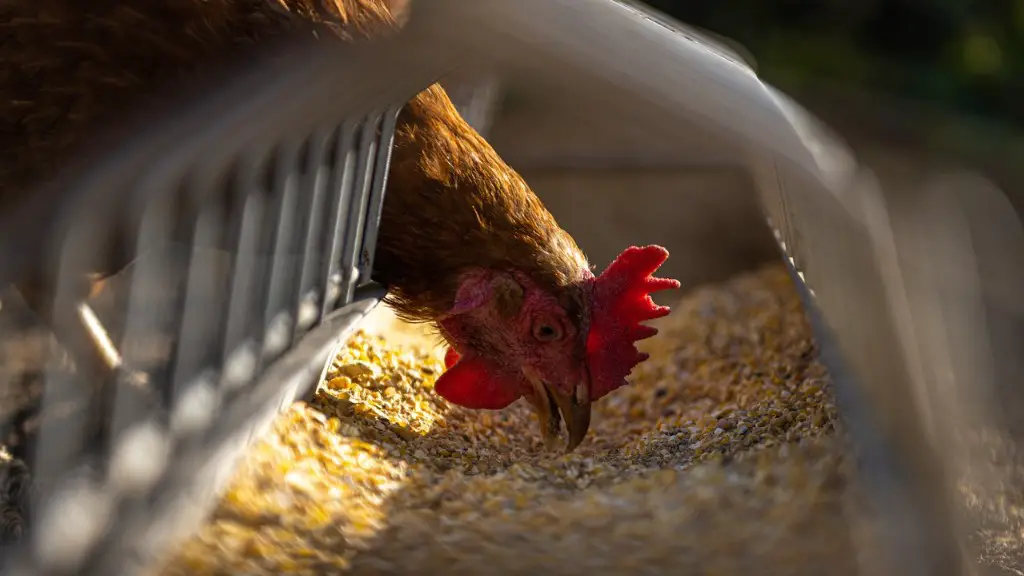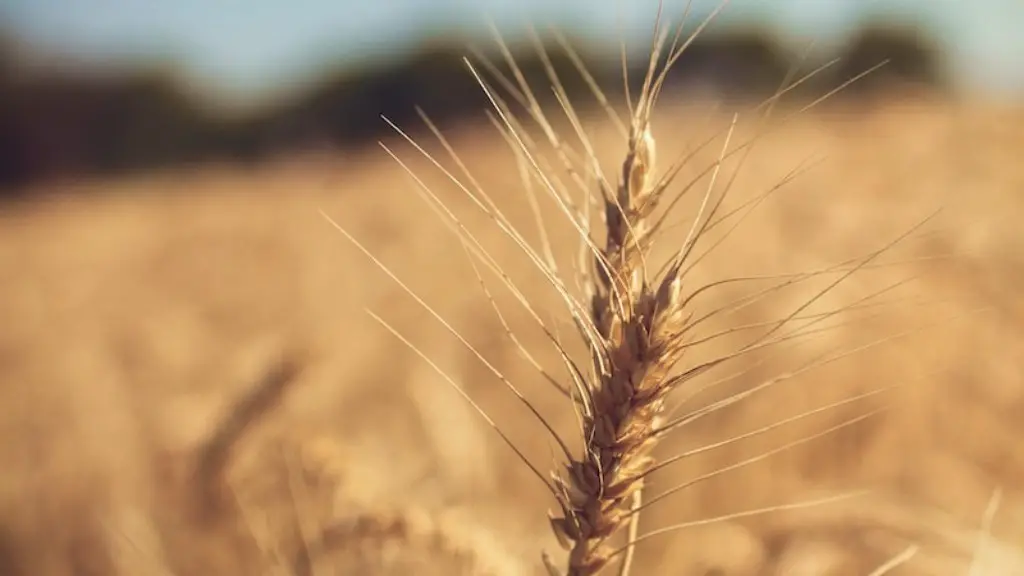Climate, soil, water, and air are natural resources that are necessary for agriculture. Biology, chemistry, and physics are sciences that help us understand these natural resources and how to use them to produce food, fiber, and other plant and animal products. Math and computational skills are important for analyzing data and developing models to understand complex environmental systems. Agricultural economics addresses economic and policy issues related to the production, distribution, and consumption of agricultural goods and services.
There is a lot of information that you will need to learn if you want to study agriculture. You will need to know about the different types of crops, the best way to grow them, and how to protect them from pests and diseases. You will also need to know about the different types of livestock, how to care for them, and what kinds of products they can produce. In addition, you will need to learn about the different types of soil, how to use it to your advantage, and how to conserve it.
Which course is best for agriculture?
Agriculture and forestry are two of the most important industries in the world. They provide food, fuel, and other products that are essential to human life. There are many different specializations within these industries, each with its own unique skills and knowledge.
Animal science is the study of animals and their care. This includes everything from breeding and nutrition to health and disease. Horticulture is the science of growing plants. This includes everything from choosing the right plants for a location to growing them in the most efficient way possible. Soil science is the study of soil and its properties. This is important for understanding how to best use the land for agricultural purposes. Rural development is the process of improving the quality of life in rural areas. This can include initiatives such as improving access to education and healthcare, as well as developing infrastructure and creating economic opportunities. Land management is the process of managing land and resources. This can include things such as conservation and land use planning.
The agriculture major is not particularly hard. Definitely, it’s not as challenging as STEM and healthcare majors. But since it’s an interdisciplinary field, encompassing anything from biology, chemistry, economics to marketing, agriculture majors have to study very well in order to earn a bachelor’s degree.
What is a good career in agriculture
There are many career options available for those with a background in crop science. One can choose to work in an educational institution, government, or industry, as a cropping systems engineer, plant specialist, crop inspector, or research scientist. Alternatively, one could pursue a career in plant breeding, plant propagation, crop production, or genetic engineering. With the right skills and experience, crop science professionals can find rewarding and challenging careers in a variety of settings.
Agricultural workers are responsible for a variety of tasks on the farm, from planting and harvesting crops to operating machinery. They need to be dexterous in order to handle delicate crops and operate farm equipment, and they need to have good listening skills in order to take instructions from their supervisors. They also need to be physically strong and have good mechanical skills in order to maintain and repair farm equipment.
Is agriculture a good career?
This job opportunity is for a career in agriculture and it is best suited for those who have a keen enthusiasm in the agricultural settings and want to apply their engineering knowledge in that field. The job will help the engineer to learn and understand the latest technologies that are being used in the agricultural field and also get an opportunity to work with some of the top companies in that field.
If you’re looking to pursue a career in agriculture, then getting a degree in agriculture is a great way to set yourself up for success. While you don’t necessarily need a degree to get many agriculture jobs, having one can give you a leg up on the competition and open up other opportunities in the industry. So if you’re wondering if agriculture is a good major to pursue, the answer is a resounding yes!
Is it worth it to study agriculture?
While the average salary for all occupations was $51,960 in 2019, the average salary for agricultural occupations was $69,620. This is more than $17,000 above the average salary. And, when compared to other industries, agriculture ranks 4th in terms of average salary.
Some of the highest-paid agricultural jobs include:
Farmers, Ranchers, and Other Agricultural Managers: $67,950
Animal Scientists: $64,020
Soil and Plant Scientists: $63,310
Agricultural and Food Scientists: $62,670
These are just a few examples of the many well-paid jobs available in agriculture. So, if you’re interested in a career in this industry, you can rest assured that you’ll be able to earn a good salary.
There are a few things to consider when thinking about whether to graduate college or complete the courses in crop science or biology. If you want to work your way up to a manager position, cooperative positions may be a good option. In high school, taking agriculture classes and getting experience working with crops can be helpful. And finally, choosing a college that suits your needs can be important.
How long does it take to study agriculture
The module covers the following topics:
-The economic theory of agriculture
-The economic principles of agricultural production
-The economics of agricultural marketing
– Agricultural policy
– The economics of natural resources and the environment
– The economics of rural development
There are many job opportunities available in the field of agriculture for youngsters. The best thing about these jobs is that they not only provide a good salary but also many other benefits to the employees. Some of these benefits include health insurance, retirement benefits, and paid vacation days.
What is the highest paying farm job?
These are some of the highest paying jobs in agriculture. Agricultural engineers make a median salary of $69,000 per year, and agricultural food scientists make a median salary of $64,000 per year. Veterinarians make a median salary of $58,000 per year, and winemakers make a median salary of $54,000 per year. Farm managers make a median salary of $51,000 per year, and agricultural sales representatives make a median salary of $49,000 per year.
Agriculture is a great opportunity for someone to earn an income. There are many career options in agriculture, and as the world keeps revolving, there are now different ways to earn from agriculture without even owning a farm or being physically present on the farm. This is a great option for those who want to earn a good income without having to invest a lot of money.
What are the 7 types of agriculture
The different types of farming are as follows:
Dairy Farming:
Dairy farming is a type of agriculture where cows are kept for their milk. It is one of the oldest types of agriculture, with evidence of it dating back over 10,000 years. Dairy farms are usually run by families, with the milk being used for drinking, making cheese, and other dairy products.
Commercial Farming:
Commercial farming is a type of agriculture where crops are grown for sale, rather than for personal use. This type of farming is usually done on a larger scale than subsistence farming, and often uses more intensive methods, such as greenhouse production and monoculture.
Plantation Farming:
Plantation farming is a type of agriculture where crops are grown on a large scale, usually for export. Plantations are usually large estates that are owned by a single company or family, and the workers are usually paid workers, rather than being subsistence farmers.
Commercial Grain Farming:
Commercial grain farming is a type of agriculture where grains, such as wheat, corn, and rice, are grown for sale. This type of farming is usually done on a large scale, and often uses more intensive methods, such as monoculture.
Commercial
There are a number of different career opportunities available in the field of agriculture. Agricultural extension, agricultural engineering, animal science, agricultural economics, crop science, soil science, forestry, and horticulture are just a few of the many options that are available. With so many different options available, there is sure to be a career path that is perfect for you.
What are the 5 F’s of agriculture?
Agriculture is one of the most important industries in the world. It provides us with food, clothing, and materials for shelter and other goods. Without agriculture, we would not be able to survive.
The five F’s of agriculture are farming, food, fabric, forestry, and flowers. Each one of these sectors is vital to the industry as a whole. Farming provides us with the food that we eat, and without it, we would starve. Food provides us with the necessary nutrients to survive, and without it, we would die. Fabric provides us with the clothing that we wear, and without it, we would be cold. Forestry provides us with the materials for shelter and other goods, and without it, we would be homeless. Flowers provide us with the beauty that we enjoy, and without them, the world would be a very bleak place.
Each one of these sectors is important, and they all work together to provide us with the things that we need to survive. Agriculture is a vital industry, and it is one that we should all support.
These are the best global universities for agricultural sciences in the United States. University of California Davis, University of Florida, Harvard University, University of Illinois Urbana-Champaign, Michigan State University, Purdue University West Lafayette Campus, University of Wisconsin Madison, and Iowa State University are all highly ranked for their programs in this field.
What are 10 agricultural careers
There are a variety of career options available in the agricultural industry. Food science veterinarians work to ensure the safety of the food supply. Farm workers and laborers are responsible for the day-to-day operations of farms. Horticulturists work to cultivate and care for plants. Agricultural equipment operators use and maintain farm equipment. Bookkeeping, accounting, and auditing clerks keep track of financial records. Truck drivers transport goods to and from farms. Food packers and packagers package food products for distribution.
Farming is one of the most stressful occupations in the US. The following are some of the common stressors we encounter: Financial pressures Debt load Dependence on unpredictable weather and volatile markets.
Farming is a high-stress occupation because farmers are constantly under pressure to produce a crop. They also have to deal with weather conditions that can ruin a crop, and they have to sell their product in a volatile market.
Warp Up
Agricultural science covers a wide range of topics, from the study of soil and water to the production of crops and livestock. As an agricultural scientist, you may investigate ways to increase crop yields, develop new sources of food, or find ways to reduce the impact of agriculture on the environment.
To become an agricultural scientist, you need to have a solid understanding of biology, chemistry, physics, and other natural sciences. You also need to be well-versed in math and statistics. Agricultural scientists typically have a bachelor’s degree in agricultural science, although some positions may require a master’s degree or higher.





